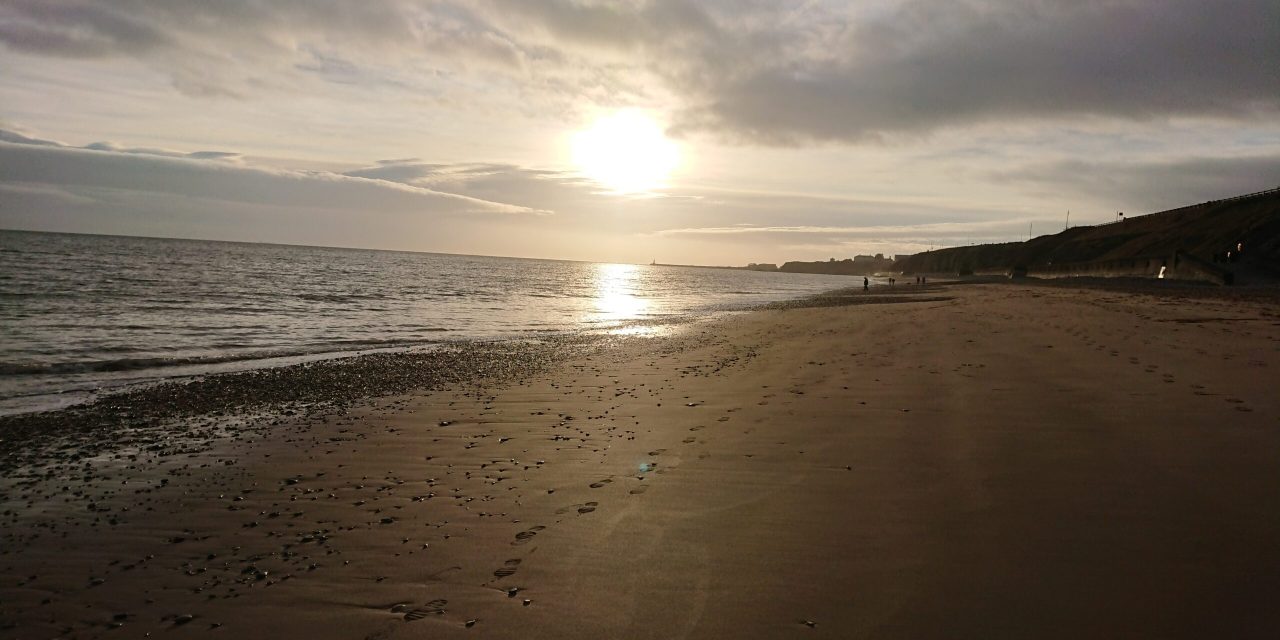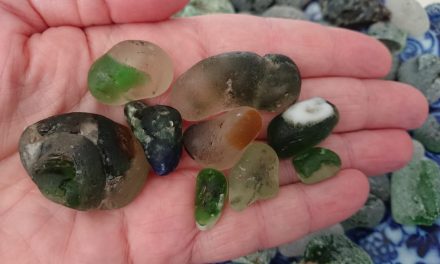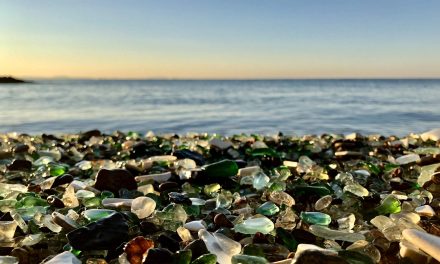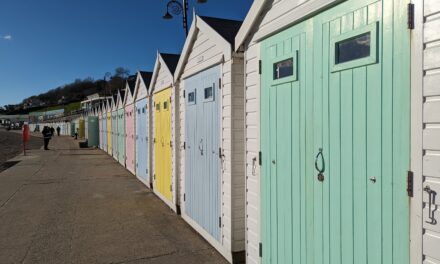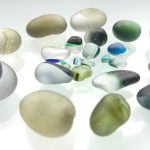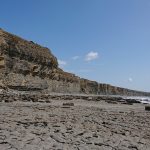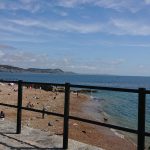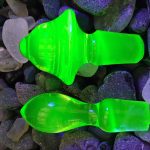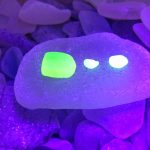Yes, you absolutely can make money from beachcombing. When I first started beachcombing, it was not my intention to make money from it. In fact, I didn’t even know you could, but since I’ve started, I’ve discovered that people really do have a love for beachcombed items and will buy them from all over the world.
Some beaches don’t have anything to beachcomb, so people who live near those beaches will purchase beachcombed items from others. Others don’t live near the coast but still love beachcombed things, and then you have coastal properties like hotels and bed and breakfasts that purchase these items for their beach-themed premises.
What to expect from our article
What things can you find on the beach?
When you think about the beach, you usually think of sand, shells, crabs, and pebbles, but you can find all kinds of things on the beach, like;
Seaglass
Seaglass is pieces of broken glass bottles that get tumbled in the sea against rocks and pebbles, and that sharp shard of glass over time becomes frosted, smooth, and rounded.
Where can it be found?
You can find seaglass on pebble or shingle beaches; you can sometimes find it on sandy beaches, but nowhere near as much as you would on shingle or pebble beaches.
Seapottery
Seapottery is formed pretty much like seaglass, but seapottery is pieces of broken plates and cups rather than glass.
Where can it be found?
Seapottery is pretty much the same as seaglass and can be found on the same types of beaches.
Marbles
There are two types of marbles you can find on the beach, decorative marbles and codd marbles. Decorative marbles are the marbles you would have played with when you were a child, and the codd marbles come from old codd bottles. Codd bottles are pretty unique; the marble is used as a seal instead of a lid; when the bottle breaks, the marble is released into the sea and goes through the same process as sea glass.
Driftwood
Driftwood also goes through a smoothing process; branches that were once sharp and jagged become smooth and rounded, but it’s not just branches that become driftwood; planks of wood or even fencing that ends up in the sea can also become driftwood.
Old bottles
If you are lucky, you can find intact bottles at the beach; this is hugely dependent on the type of beach you visit; old harbours are more likely to produce bottles and old coastal dump sites like Lyme Regis.
How can I make money from beachcombing?
You can make money from beachcombing by turning what you collect into craft items to sell, or you can sell what you find to other crafters to use in their crafts. If you are artistic, you can make many things from the stuff you find at the beach. However, many people collect solely to sell. In Seaham, for instance, many of the locals collect purely to sell, and they make a good living from it too; they really don’t like it when outsiders visit the beach because they want to keep it all to themselves.
While there is lots of seaglass to be found at Seaham, it is not always going to stay so plentiful, and eventually, the seaglass that is there will eventually dry up. The seaglass that’s found at Seaham beach comes from the old bottle works that were on the site, and now those bottle works are long gone; the seaglass is becoming less and less.
What can’t you take off the beach?
While you can take seaglass, marbles, seapottery, driftwood, etc., there are some things you absolutely cannot take off the beach, and those are pebbles and sand. It is illegal to take both pebbles and sand off the beach because these things form part of the sea defences. Ahh, “but we only took one pebble.” OK, so you only took one pebble; what if everyone took just one pebble? That’s one fewer pebble to form the sea defences. If it belongs on the beach, you cannot take it; if it’s any of the man-made items, you are free to take them.
Metal detecting
Like beachcombing, some people metal detect as a hobby. You might think metal detecting is carried out on land in fields, but there are plenty of detectorists who like to do it on the beach. You might have seen one yourself while you were at the beach, headphones on, head down and swinging away. People think metal detecting is quite nerdy, which can lead to some negative public interaction. Which, in my opinion, is completely unfair because they don’t actively seek out people to criticise them about their hobbies, so they ought to be allowed to pursue them in peace. Metal detecting is simpler on the beach than it is on land. Since every piece of land is privately owned, you must first obtain permission before detecting any of it. It can be challenging to find land due to farmers’ frequent refusal to give consent.
Although someone still owns beaches, you don’t need to seek permission to detect many of them. Some beaches are protected, and metal detecting is not allowed on the protected ones. You need to check beforehand which ones you can detect. There are foreshore and estuary maps available from the crown estates that show the areas you cannot detect. Any area that is pink is strictly forbidden, and you cannot detect it.
People think metal detecting is quite nerdy. Some detectorists attract some negative interaction from the public because of it, which I think is totally unfair as they don’t seek out others to give them grief about their hobby; they should be able to do theirs in peace. Beach metal detecting is more straightforward than land detecting, the land is owned by someone, and permission needs to be sought before you can detect it; farmers are reluctant to give consent, so it can be pretty difficult to detect on land for that reason.
Although someone still owns beaches, you don’t need to seek permission to detect many of them. Some beaches are protected, and metal detecting is not allowed on the protected ones. You need to check beforehand ones you can detect on.
There are foreshore and estuary maps available from the crown estates that show the areas you cannot detect on these are the pink areas shown; any area that is pink is strictly forbidden, and you cannot detect there.
What can you find while metal detecting?
You can find anything from jewellery and coins to pull rings and old cans on the beach; pretty much anything that is metal you can detect. People have also been known to find bullets, grenades, and bombs while detecting on the beach, so great care should be taken as some of these may still be live ammunition.
Any finds like this need to be reported to the coast guard so that they can assess any danger and carry out a controlled explosion if necessary. You need to have a decent metal detector for beach detecting, so it is worth joining some metal detecting groups to get some advice from other detectorists before purchasing one that you can’t use on the beach.

